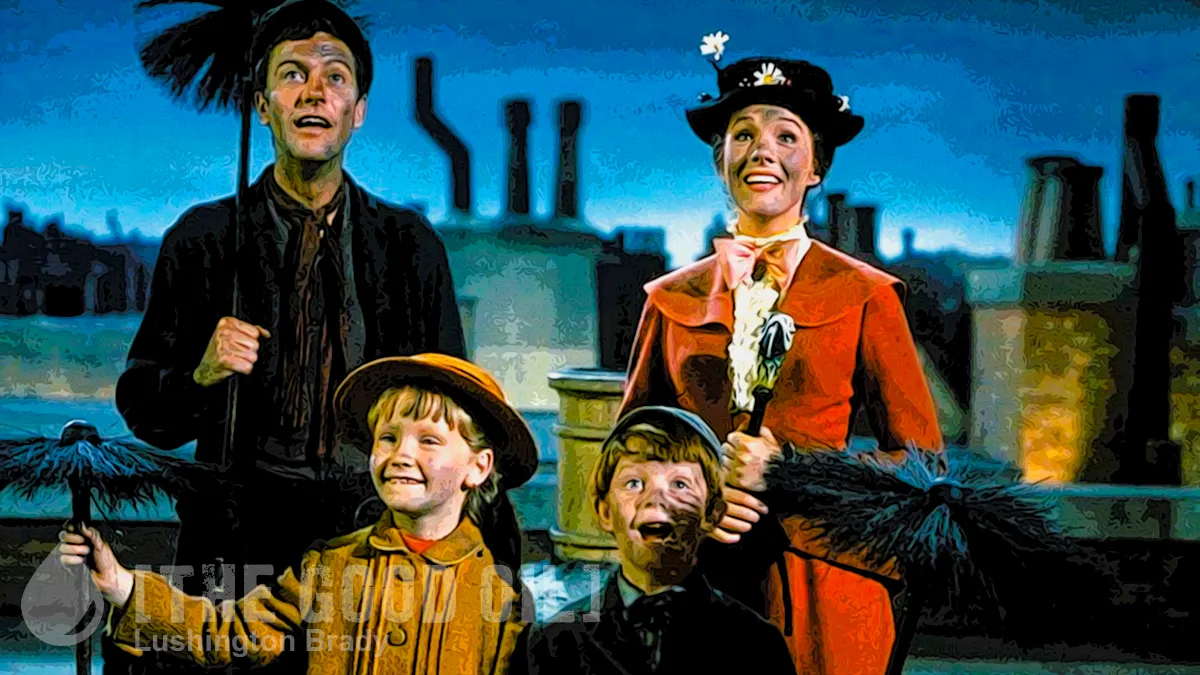Table of Contents
So, what are they cancelling today?
Everything from classic Disney to children’s books. Not even old-timey stuff, like the Epaminondas or Brer Rabbit stories, either, but innocuous enough seeming stuff like The Rainbow Fish. Yes, believe it or not, even sparkly piscines are enough to trigger the woke left.
First off, Mary Poppins. Yes, despite delighting generations of children since 1926, the mid-1960s film version of Mary Poppins is off to the memory hole.
The much-loved film, which became the biggest box office draw in Disney history after its 1964 release and saw star Julie Andrews take home an Oscar for her flawless performance, has been issued with a new rating by The British Board of Film Classification (BBFC).
Ahead of its 60th anniversary, Mary Poppins has now been changed from a U rating (Universal) to PG (Parental Guidance) thanks to a scene featuring Mary and the cheeky Admiral Boom.
The BBFC was pushed to take a close look at two scenes where the Admiral refers to the chimney sweepers as “Hottentots”.
In fact, it’s highly doubtful whether anyone, even in 1964, had the foggiest idea what a hottentot was, or why it should be “offensive”. Like “Eskimo”, no one knows precisely how it originated, but modern wokesters are damned certain it has to be offensive.
“We understand from our racism and discrimination research that a key concern for parents is the potential to expose children to discriminatory language or behaviour which they may find distressing or repeat without realising the potential offence.”
So, like Mayella Ewell in To Kill a Mockingbird, they immediately assume that anything they can’t actually understand must be an insult.
What did the poor Rainbow Fish do to offend anyone, though? It should surprise no one that, according to an excessively flaming American teacher, it’s because pride is a good thing.
The Rainbow Fish is a picture book classic that tells the story of fish with glittering scales, who is too proud for the other fish, but ends up giving away his prized scales and becomes friends.
Some believe the story is simply about sharing and being kind to others.
But for ludicrously effeminate teacher Danny Vuong, though, the Rainbow Fish should have been obstinately all about me, me, me.
He explains that the author had good intentions, and the Rainbow Fish was “full of himself” because when the other fish wanted to play, he swam past and “thought he was better” […] I think it carries a toxic message – the scales could be used as a metaphor for pride” […]
When a little fish asked for one his scales, and Rainbow Fish refused, Mr Vuong believed he had that right.
Not even being written by an author named “Pfister” is enough to save a children’s story from the wrath of the rainbow inquisitors.
On a side note, it was somewhat hilarious to read, in a discussion on whether modern comedy is being censored, to see someone cite It’s Always Sunny in Philadelphia as a counter-argument. Apparently it escaped his attention that entire episodes have been removed by streaming services for being ‘racist’.









